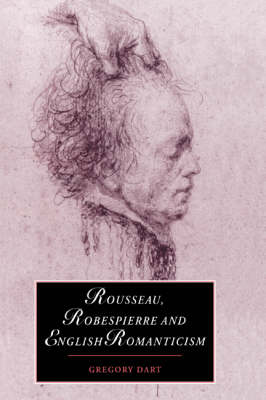Cambridge Studies in Romanticism
2 total works
Gregory Dart expands upon existing notions of Cockneys and the 'Cockney School' in the late Romantic period by exploring some of the broader ramifications of the phenomenon in art and periodical literature. He argues that the term was not confined to discussion of the Leigh Hunt circle, but was fast becoming a way of gesturing towards everything in modern metropolitan life that seemed discrepant and disturbing. Covering the ground between Romanticism and Victorianism, Dart presents Cockneyism as a powerful critical currency in this period, which helps provide a link between the works of Leigh Hunt and Keats in the 1810s and the early works of Charles Dickens in the 1830s. Through an examination of literary history, art history, urban history and social history, this book identifies the early nineteenth-century figure of the Cockney as the true ancestor of modernity.
This book re-opens the question of Rousseau's influence on the French Revolution and on English Romanticism, by examining the relationship between his confessional writings and his political theory. Gregory Dart argues that by looking at the way in which Rousseau's writings were mediated by the speeches and actions of the French Jacobin statesman Maximilien Robespierre, we can gain a clearer and more concrete sense of the legacy he left to English writers. He shows how the writings of William Godwin, Mary Wollstonecraft, William Wordsworth and William Hazlitt rehearse and reflect upon the Jacobin tradition in the aftermath of the French revolutionary Terror.

